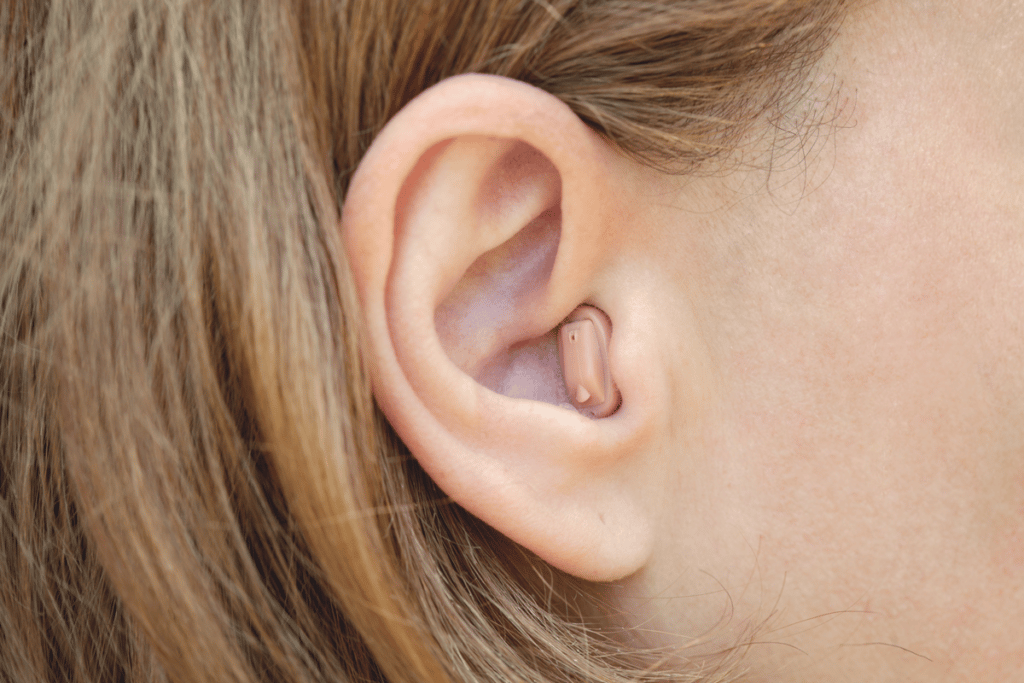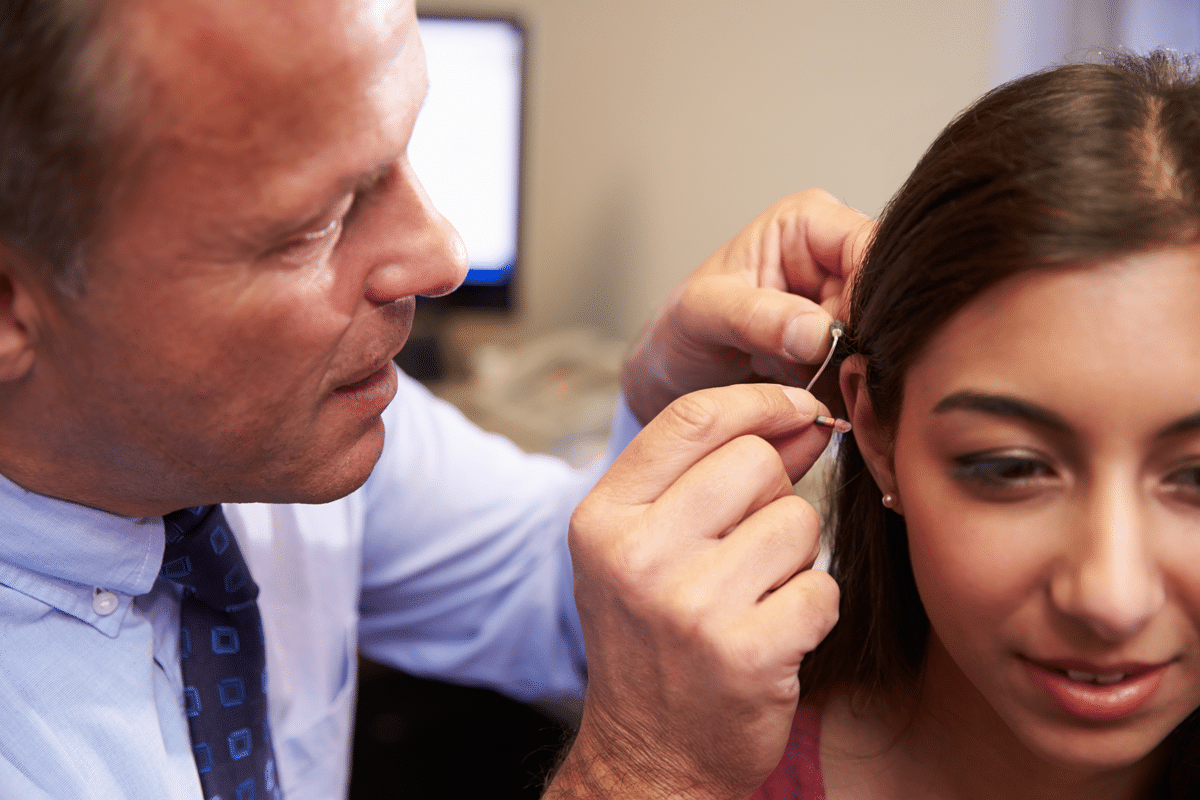
It’s a staggering statistic considering that 20 percent of Americans experience hearing loss. Put into perspective that 48 million people! Hearing loss can affect people of all ages. It can be minor or severe, temporary or permanent, depending on the root cause. Many who have hearing loss do not seek treatment due to hearing aid myths they might have heard
So if you have been teetering on contacting a hearing health professional, read our list of hearing aid myths below, and the truth may startle you..
Myths about hearing loss:
Myth 1: Hearing aids make me look old.
FACT: It’s important to remember that hearing loss can affect people of all ages – from infants to seniors. One of the most significant growing segments for hearing loss is 12-35 due to increased listening to loud music for prolonged periods.
Today’s hearing aids are discrete and stylish. They come in many colors and styles, making them near invisible or vibrant and colorful so you can match your hearing aids with your personality.

Myth 2: My hearing is pretty decent. Hearing aids won’t help.
FACT: Even mild hearing loss can impact a person’s life. Asking people to continually repeat themselves and listen to the TV or radio at deafening volume indicates that you should check your hearing. Appropriate hearing aid use is associated with an improved outlook, mood, mobility, freedom, communication, and social interaction. By working with your hearing health provider, they can help you determine how much hearing aids can improve your quality of life and hearing.
Myth 3: Hearing aids will correct my hearing to normal.
FACT: Hearing aids will not restore your hearing to normal; however, they will provide significant benefits and improvement to your listening and communication abilities and reconnect you to the world.
Myth 4: Hearing aids are similar to glasses.
FACT: With glasses, one’s vision can generally be corrected back (or close) to 20/20. The same does not hold for hearing aids because your brain needs time to readjust to the sound coming through the hearing aid. Because each person’s hearing loss is unique, having different abilities to hear various frequencies, the hearing aid must be programmed to the patient’s hearing ability. The fine-tuning process can take several repeated trips to the audiologist or hearing healthcare provider.
Myth 5: It’s just my hearing and doesn’t affect anything else.
FACT: Untreated hearing loss affects far more than just your hearing. Recent studies have shown that when hearing loss is left untreated, it can impact your entire life, including – significantly higher rates of depression, anxiety, and other psychosocial disorders in those with hearing loss who were not wearing hearing aids. Hearing loss is an invisible handicap that can keep you from experiencing the world around you.

MYTH 6: I can save more money and order them online or get them at the store
FACT:With new regulations allowing the sale of Over-The-Counter hearing aids, you can purchase them online or at most “big box” stores; However, hearing aids are not a one size fits all item. As mentioned above, hearing aids are prescribed to fit your hearing loss. Generally, they require multiple adjustments after the first fitting to further fine-tune the hearing aids.
OTC and online hearing amplifiers lack the levels of adjustments most people with hearing loss require to benefit them. All adjustments and tuning are put on the consumer to make.
Saving a few dollars to avoid fixing the root cause rarely works out in the consumer’s favor.
Myth 7: Just buying the least expensive hearing aid is good enough.
FACT:You should look to get the best hearing aid to fit your hearing loss. It is vital to have a budget in mind. Depending on your degree of hearing loss and lifestyle needs. Your budget should first depend upon the degree of hearing loss (Mild, Moderate, Severe). Then additional “lifestyle” features should be considered – Artificial Intelligence (AI), Health Tracking, T-coil, remote controls, variable programming, and more.
Myth 8: Hearing loss is unavoidable, primarily as we age, and can’t be avoided.
FACT:There are many causes of hearing loss, including certain medications, genetics, and exposure to loud noises. Other health ailments can also lead to hearing impairment. Similar to skin damage from sun exposure, the effects over time of today’s loud cultures have led to a more significant number of people with hearing loss, which, as we age, becomes more apparent – especially in older adults. Noise exposure is the most preventable cause of hearing loss.If you are noticing difficulties hearing, or if your family and friends are seeing you having hearing and communication problems, reach out to a Salem Audiology Clinic and allow us to help determine if hearing aids are right for you.
